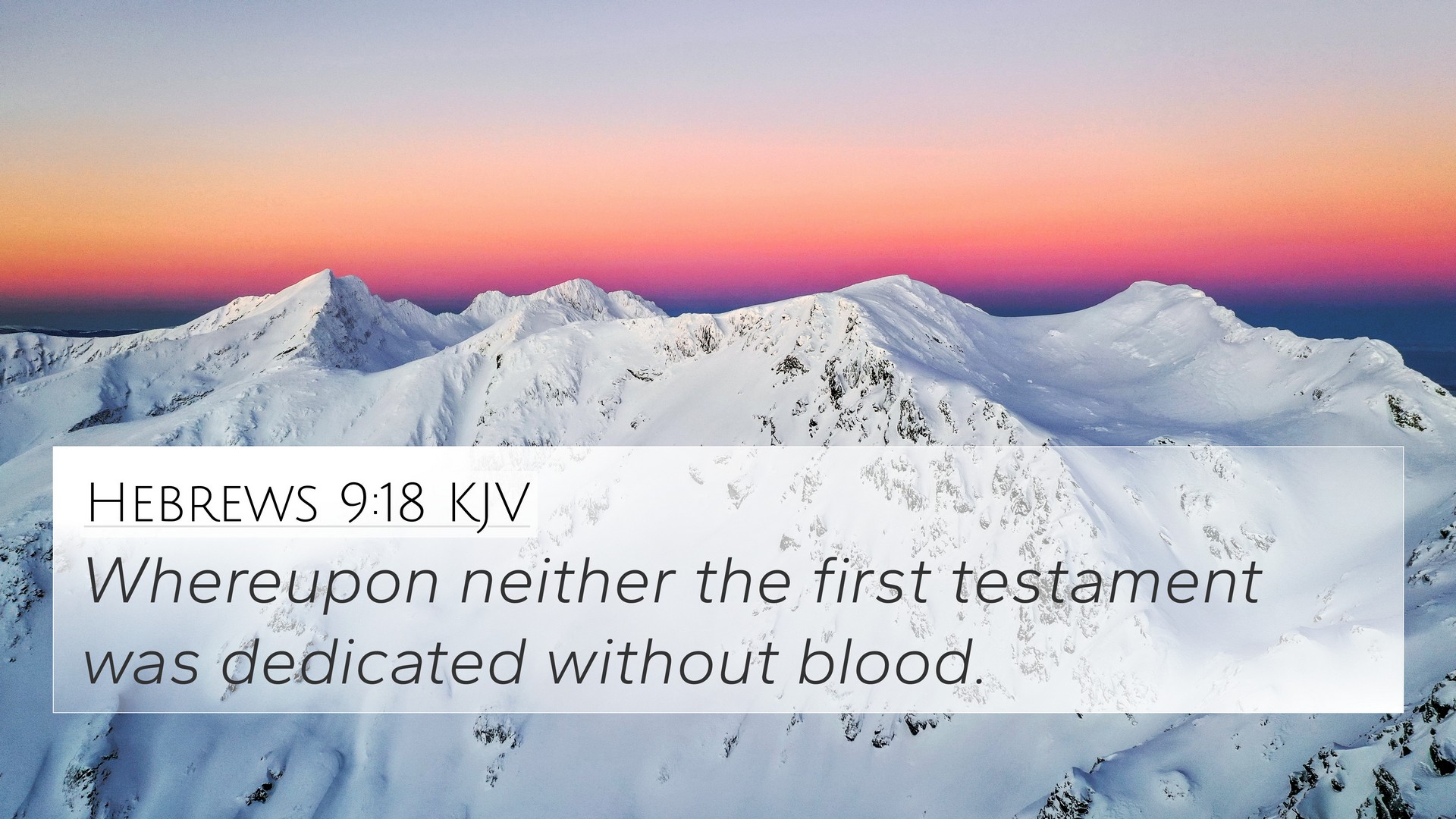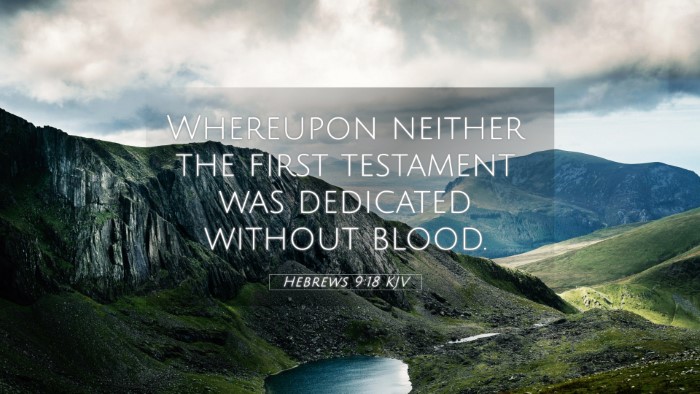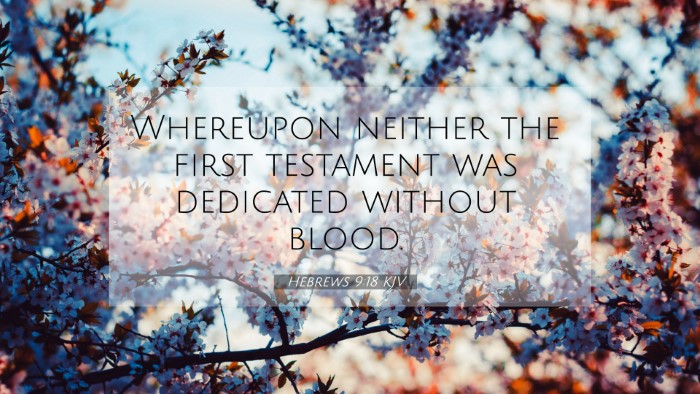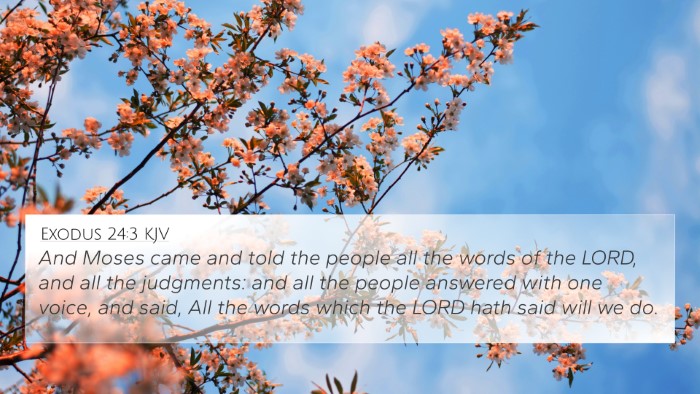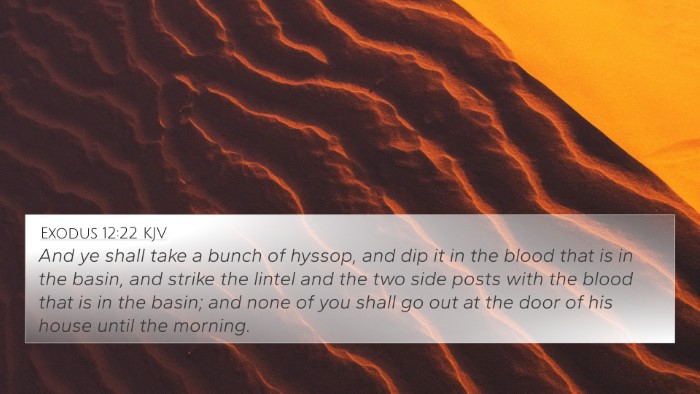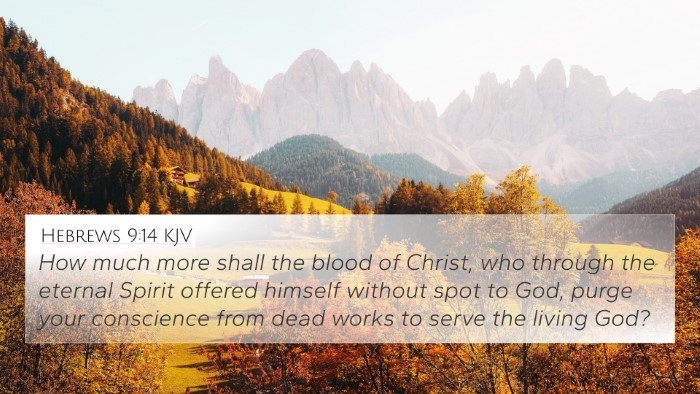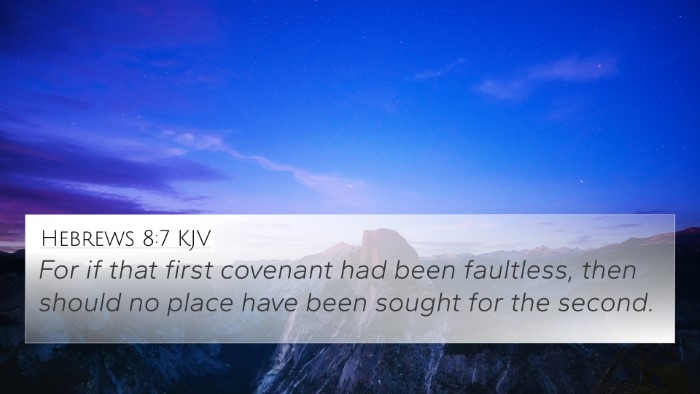Understanding Hebrews 9:18
The verse Hebrews 9:18 states: "Whereupon neither the first testament was dedicated without blood." This passage carries significant theological weight and invites deep interpretation through the lenses of various commentaries.
Meaning of Hebrews 9:18
In understanding this verse, several public domain commentaries shed light on its implications:
-
Matthew Henry:
Matthew Henry explains that this verse emphasizes the necessity of blood in the dedication of the first covenant, demonstrating the seriousness of sin and the cost of atonement. He highlights that just as the first covenant was initiated with blood, the new covenant established by Christ also underscores the importance of sacrifice.
-
Albert Barnes:
Albert Barnes provides insights into the historical context, noting that the dedication of the original covenant in the Mosaic law involved various sacrifices. He asserts that this illustrates the principle of the necessity of blood for atonement, which points toward the ultimate sacrifice of Christ in the New Testament.
-
Adam Clarke:
Adam Clarke further emphasizes the symbolic significance of blood in this context. He discusses how the rituals associated with the Old Covenant foreshadowed Christ's sacrifice, indicating that the shedding of blood is an essential component of establishing a covenant with God.
Thematic Connections
Hebrews 9:18 serves as a cornerstone for understanding the themes of sacrifice, covenant, and redemption throughout the Bible. Here are some critical thematic connections:
-
Blood and Sacrifice: The connection here is evident in passages like Exodus 24:8, where Moses sprinkles the blood of sacrifices. This thematic link demonstrates a pattern of sacrifice that is crucial for covenant establishment.
-
The Role of Christ: In Matthew 26:28, Jesus explicitly ties His blood to the new covenant, stating it is poured out for many for the remission of sins. This parallel illustrates how the sacrifice of Christ fulfills and transcends the need for sacrificial blood in the Old Testament.
-
Forgiveness of Sins: Hebrews 9:22 states, "without the shedding of blood is no remission," relating directly to other verses like Leviticus 17:11, which underline the notion that blood holds the power to atone for sin.
-
Covenant Theology: Jeremiah 31:31-34 prophesies a new covenant that God will make with His people, indicating a transition from the old covenant marked by blood sacrifice to a new covenant established through Jesus, highlighting God's enduring commitment to His people.
-
Intercession: Christ's role as High Priest in Hebrews 4:14-16 further connects the concept of blood as a means of access to God, illustrating how His sacrifice provides a new way to approach the throne of grace.
Cross-References
Hebrews 9:18 can be cross-referenced with the following verses, providing a broader understanding of its context:
-
Exodus 24:8: Discusses the blood of the covenant.
-
Matthew 26:28: Jesus speaks of the blood of the new covenant.
-
Hebrews 9:22: Reinforces the necessity of blood for redemption.
-
Jeremiah 31:31-34: The prophecy of a new covenant.
-
Leviticus 17:11: Clarifies the purpose of blood in atonement.
-
Romans 6:23: Connects the theme of sin and its consequences.
-
1 Peter 1:18-19: Discusses redemption through the precious blood of Christ.
-
Colossians 1:20: Speaks of the reconciliation through His blood.
-
Hebrews 10:4: Affirms that the blood of bulls and goats cannot take away sins.
-
Revelation 5:9: Celebrates the Lamb's sacrifice and its redemptive power.
Conclusion
Hebrews 9:18 provides profound insights into the significance of blood in covenant making. By exploring connections between different scripture passages, one can appreciate the depth of this verse and its implications within the larger biblical narrative. The interpretations from various commentaries reinforce the necessity of understanding biblical texts through cross-referencing and thematic connections, allowing readers to see how scripture dialogues with itself across both the Old and New Testaments, enriching one’s study and understanding of God's redemptive plan.
